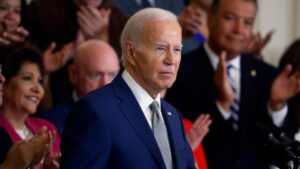Nvidia's international growth in AI markets could be hindered by new U.S. regulatory measures aimed at affecting foreign sales, particularly in light of geopolitical conflicts.
Nvidia's Global Expansion Faces U.S.-Chinese Tensions

Nvidia's Global Expansion Faces U.S.-Chinese Tensions
U.S. government proposes new restrictions on AI chip sales amid concerns about empowering adversaries.
In early August, King Jigme Khesar Namgyel Wangchuck of Bhutan embarked on a journey from his mountainous kingdom to Nvidia's Silicon Valley headquarters to explore potential collaborations involving artificial intelligence (AI) technology and the country's vast hydropower resources. This meeting encapsulated Nvidia's outreach efforts, which have attracted attention from various global leaders, as they seek investment in AI systems powered by advanced chip technology.
Nvidia, under CEO Jensen Huang, has been at the forefront of the AI revolution and anticipates over $10 billion in international sales this year, a significant portion of which is expected from countries investing in AI development. However, U.S. officials are concerned that this global sales strategy could inadvertently empower rival nations, prompting the Biden administration to propose regulations that would reshape U.S. chip export policy.
The evolving framework suggests unrestricted purchases for U.S. allies but imposes strict limits on purchases from perceived adversaries, additionally establishing quotas for others based on alignment with U.S. strategic objectives. Such measures aim to mitigate risks associated with advanced technologies falling into the wrong hands.
This potential shift comes as Nvidia's efforts under the "sovereign AI" initiative generate international appeal. CEO Huang has traveled extensively, logging over 30,000 miles in three months to broker new loyalties and partnerships worldwide, demonstrating Nvidia's commitment to maintaining its global influence in an increasingly complex diplomatic landscape. As these developments unfold, the tension between fostering innovation and safeguarding national interests will be a defining challenge in the future of AI technology.
Nvidia, under CEO Jensen Huang, has been at the forefront of the AI revolution and anticipates over $10 billion in international sales this year, a significant portion of which is expected from countries investing in AI development. However, U.S. officials are concerned that this global sales strategy could inadvertently empower rival nations, prompting the Biden administration to propose regulations that would reshape U.S. chip export policy.
The evolving framework suggests unrestricted purchases for U.S. allies but imposes strict limits on purchases from perceived adversaries, additionally establishing quotas for others based on alignment with U.S. strategic objectives. Such measures aim to mitigate risks associated with advanced technologies falling into the wrong hands.
This potential shift comes as Nvidia's efforts under the "sovereign AI" initiative generate international appeal. CEO Huang has traveled extensively, logging over 30,000 miles in three months to broker new loyalties and partnerships worldwide, demonstrating Nvidia's commitment to maintaining its global influence in an increasingly complex diplomatic landscape. As these developments unfold, the tension between fostering innovation and safeguarding national interests will be a defining challenge in the future of AI technology.




















